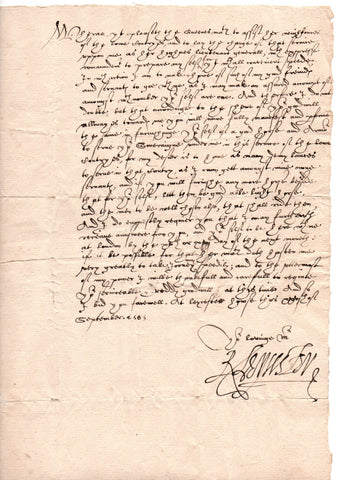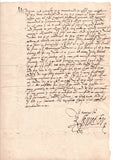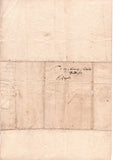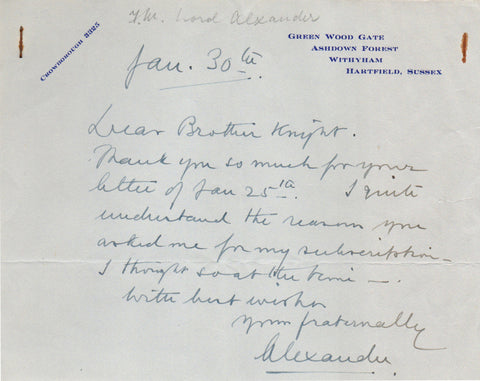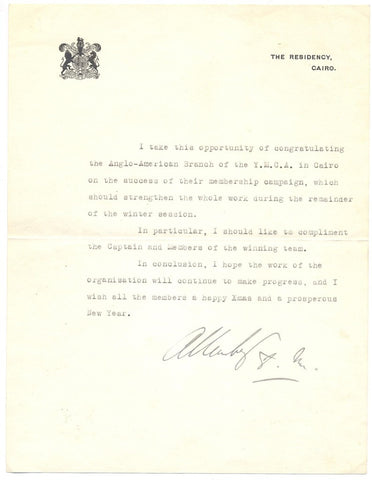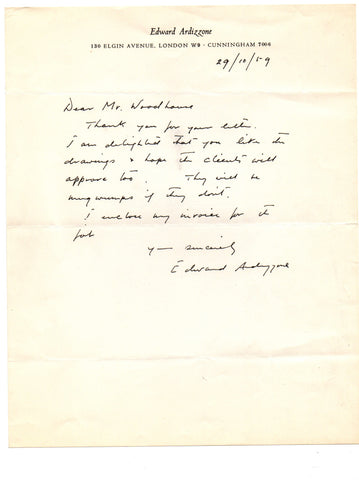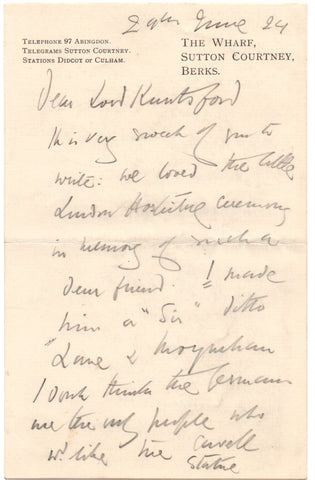LEICESTER Robert Dudley, Earl of - LS 1585 recruiting support for his campaign in the Spanish Netherlands
Robert Dudley, Earl of LEICESTER (1532-1588)
Letter Signed (“R Leycester”) to “My loving servant Burdett” informing Burdett that he has chosen him to accompany him in the task set by Her Majesty to “assist her neighboures of the lowe Countryes” and asking him to also furnish good horses and “men to be well chosen also”.1 page folio with integral address leaf, Leycester House, 26 September 1585.
“Yt pleaseth the Queenes Ma[jes]ty to assist her neighboures of the lowe countryes, and to lay the charge of that service upon me as her highnes lieutenant generall, with express commandment to prepare my self for yt with all convenient speede. In which action I am to make my pick of such of my good friends and servants to goe with me, as I may make an assured accompt of amongst w[hic]h number yourself are one. And the purpose I do not doubte, but that according to … yo[u]r goodwill allwayes towards me you will nowe fully manifest and expresse the same in furnyshinge yo[u]r self of a good horse and armoure to serve the Sovereigne under me in this service of the lowe countries, for my desire is to have as many to serve in that country, as I can gett amongst mine owne servants, and if you will furnish any more horse beside that for yo[ur]self, lett them be good able light horse. And the men to be well chosen also, that shall ride them. And I do earnestly require you … yo[r]selfe to be there with me at London by the xth day of the next month if it be possible for that her ma[jes]ty doth hasten me very greatly to take my journey speedily; and to the uttermost of my power I wilbe thankefull and carefull to requite yo[u]r serviceable … goodwill at these times. And so I bid you farewell.”
The Dutch Revolt, or struggle for Dutch independence as it is sometimes known, was a long and complicated conflict which stretched over nearly eight decades. It involved not only the Dutch provinces, but also much of present-day Belgium. Although religion was an issue in the conflict, at its heart were the historic rights of the Dutch cities and nobility, threatened by the heavy-handed authority of the Spanish Habsburg rulers, displayed most of all by Philip II under whose reign the war erupted.
The outstanding leader in the early years of the revolt was undoubtedly Prince William of Orange. Born into a Protestant family, he was then brought up as a Catholic but returned to his Protestant faith in later life. Interestingly, however, he always favoured religious toleration in the Netherlands. Prince William united the disparate factions of the revolt as no other leader could have succeeded in doing, so it was a severe blow when he was assassinated in July of 1584.
A year later, Elizabeth I signed a treaty – the Treaty of Nonsuch – with the Dutch, offering them military assistance in their battle with the Spanish, who had signed a treaty with the French Catholic league. Although the Dutch revolt included both Protestant and Catholics, this treaty between two fiercely Catholic countries had posed an obvious threat both to England and to the tolerant Dutch. Dudley, who had enjoyed a warm friendship with Prince William, was duly ordered to prepare his men to sail for the Low Countries to assist them in their struggle.
The Dutch welcomed the Earl of Leicester with open arms, offering him the position of Governor-General of the United Provinces, which he accepted a month later, before having received the official approval of the English crown. Elizabeth, however, reacted with a fury he had not anticipated, ordering him to stand down from this position. It could, in fact, have implied that, as Leicester’s sovereign, she was now seen as ruler of the Dutch provinces, a role which, with her customary caution, she did not desire.
The situation became increasingly difficult for Leicester, and some of his reforms attracted criticism from the Dutch who had backed him so enthusiastically. Perhaps the saddest moment for him came at the Battle of Zutphen where his nephew, the poet Sir Philip Sidney, was killed. By the end of 1587, he was exhausted, caught between the conflicting demands of Elizabeth and the Dutch States General, and he returned to England. Having spent vast sums and mortgaged his estate to finance the enterprise he returned deeply in debt.
Philip II’s hostility towards England, fuelled by England’s treaty with and assistance to the rebellious Dutch, finally resulted in his despatch of the Armada to conquer England. As Captain-General of the Queen’s Armies, Leicester set up his camp at Tilbury. When Elizabeth gave her famous rousing address to the troops he stood by her horse, her loyal subject. Less than two months later, he was dead.
Several minor holes at the folds, not affecting the overall appearance of the letter. The address leaf has a tear from the breaking of the seal, the seal no longer present.
Delivery
Autographs can be delivered worldwide. Delivery costs are calculated at the time of order and items will be sent by the most appropriate means, depending on your location and the value of the item. This will usually be by Royal Mail Special Delivery within the UK and Royal Mail Tracked outside the UK.
The current delivery charges are:
-
UK:
Royal Mail Special Delivery £9.00
-
Europe:
Europe Royal Mail Tracked £15.00
EU customers should note that, following brexit, local VAT and customs duties may apply to their purchases.USA:
-
Royal Mail Tracked £25.00
Rest of the World:
-
Rest of the World Tracked £20.00
Export Licensing
Customers should be aware that all letters and documents over 50 years old require an export licence, which may delay delivery by anything from one to three weeks. Signed photographs are not subject to export licence regulations, and can be sent immediately.
There is no charge for the export licence and I will take care of the application, the only inconvenience to you will be the delay.
Authenticity
The authenticity of the letters and documents offered is guaranteed.
Payment
Online sales orders
Payments made via the website are processed by Shopify Inc and can be made using Visa, Mastercard or American Express.
Telephone sales orders
Items may be purchased by phone. Please contact me using the website Contact Form and I will call you within 48 hours to discuss your requirements. Payment for purchases ordered by phone can be paid upon receipt of the invoice and must be paid within 7 days. Phone orders can be paid by cheque (in pounds sterling only) or bank transfer.
Items will be reserved for one week following the order confirmation and will be dispatched either within 7 days after full payment has been received, or after any required export licenses have been granted.
Returns Policy
Should you be in any way dissatisfied with your purchase, items may be returned within six weeks of delivery and a full refund will be made upon receipt of the returned item. The item must be received by Richmond Autographs in the same condition as when dispatched. For full details, please read our Terms and Conditions.
We Also Recommend

